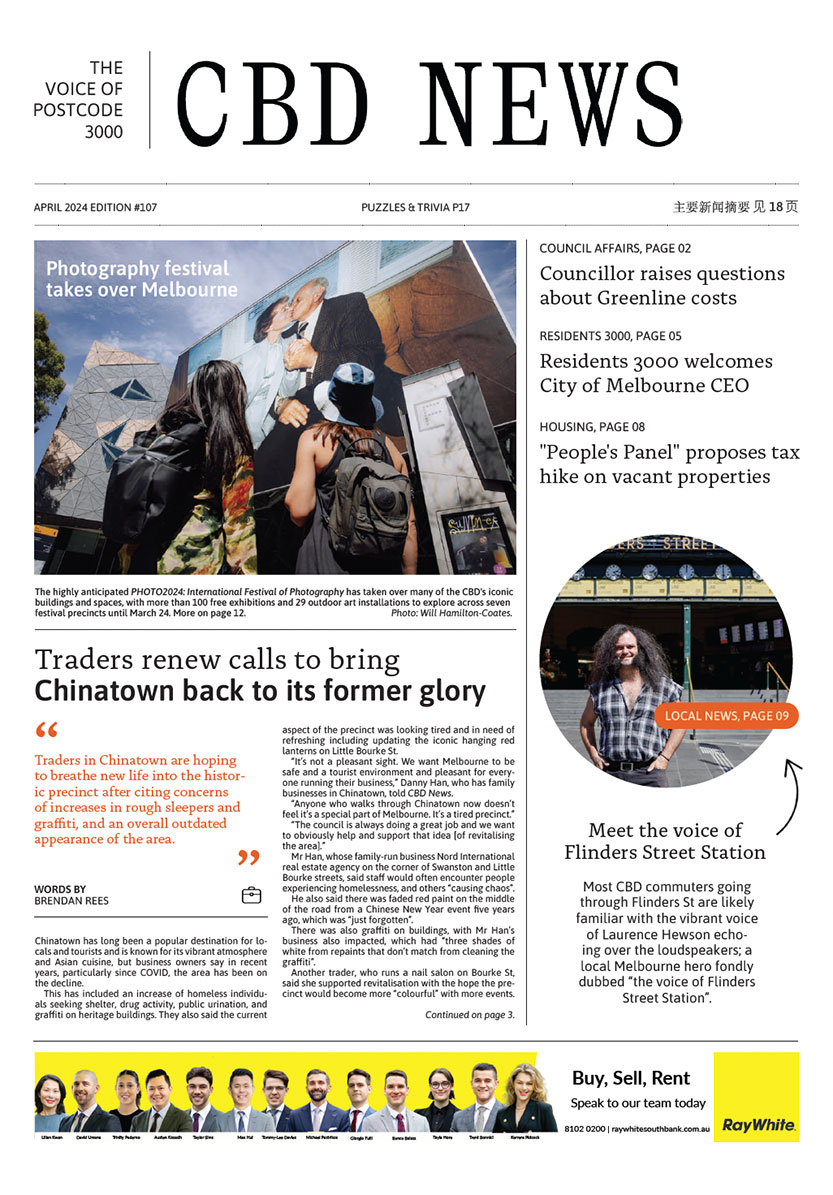Council slams state, federal inaction on housing crisis
By David Schout
City of Melbourne councillors have slammed upper tiers of government for a “disgraceful” response to the housing crisis and said “business as usual” would no longer cut it for the city.
In passing a new draft affordable housing strategy, a piece of policy some conceded would not have the power to enact real change, councillors pleaded for urgent action on the pressing issue.
Cr Nicolas Frances Gilley, a former CEO of the Brotherhood of St Laurence, said the lack of affordable housing was an issue that had significantly worsened in recent years.
“It’s been a big issue in this country and started lots of organisations,” he said at the March 3 Future Melbourne Committee meeting.
“We really had a response to it when the state took on building public housing. But something changed. We stopped, and it’s gone backwards. And not only that, we’ve replaced it with nothing … I would say to the state government, you have not acted for some time and you have been in the position where you could.”
The council revealed there is a current shortfall of at least 5500 affordable rental homes for people on very low to moderate incomes, a number that would quadruple to around 23,200 by 2036 if no action was taken.
“Affordable” rent is generally defined as below 30 per cent of a household’s income.
When rental repayments exceed this, tenants are forced to sacrifice necessities of daily life such as food, healthcare or education.
The council’s draft strategy pledged to lobby the state government for “inclusionary zoning” in Victoria, a move that would force developers to include some affordable housing in new developments.
On council-owned land (a small amount in the municipality), it aimed to deliver up to 25 per cent of residential development as affordable housing.
Cr Rohan Leppert said that the upcoming public consultation period, followed by the final strategy, was “one of the most important” things councillors would do this term.
But he admitted that their role was still small when compared with the state and federal governments.
“Even if all of the actions that we’re discussing and proposing in this strategy come to life and can be acted on, we’re still tinkering at the edges; we’re not re-writing market economics here,” he said
“We don’t dictate what the state planning provisions are going to be. We can advocate for something, but it doesn’t necessarily mean we will get it.”
Cr Leppert said he was now looking for “the strongest possible leadership” from the state government, despite the lack of national vision.
“We still have no national housing strategy and that is an absolute disgrace,” he said.
Lord Mayor Sally Capp agreed that the strategy was “momentous”, but argued the council’s impact was not insignificant.
“I actually disagree with comments about the fact that we can’t play a major role in this. We can, just by changing our own thinking and policy response to this; we are creating ripples that can have a major impact,” Cr Capp said.
Earlier in the evening Michael Lennon, the managing director of not-for-profit housing provider Housing Choices Australia, said Melbourne’s reputation was dented by the housing crisis.
“Lewis Mumford, the American urban theorist, said the test of any city was the life it made possible for its citizens. On that definition, we are failing a significant number of people,” Mr Lennon said.
The council’s planning chair Nicolas Reece agreed, and said Melbourne’s proud “liveability” claim should be put under the microscope.
“What is very, very inescapably clear is that ‘business as usual’ is not going to cut it for Melbourne if we want to see ourselves as a truly fair, equitable and liveable city … we like to say we’re the world’s most liveable city, but you can’t be [that] if people can’t afford to live here,” Cr Reece said.
“There is no silver bullet to solving affordable housing. The truth is, it’s something the City of Melbourne can’t do alone. We need to collaborate and work with other tiers of government.”
You can have your say on the council’s Affordable Housing Strategy before April 5 at participate.melbourne.vic.gov.au •

Backloading across borders with Transcorp – navigating interstate moves with ease






 Download the Latest Edition
Download the Latest Edition